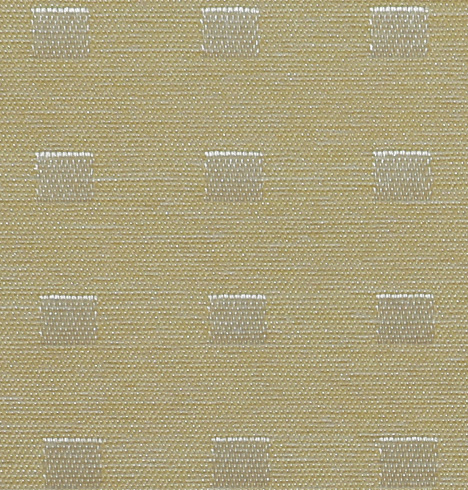The use of recycled polyester and natural fibers like bamboo in roller blind shade fabrics provides several environmental benefits:
Reduced Resource Consumption
Recycled Polyester: Recycled polyester is made from post-consumer plastic bottles or industrial polyester waste, significantly reducing the need for virgin petroleum, which is the primary raw material for conventional polyester. This lowers the demand for fossil fuels and minimizes the environmental footprint associated with the extraction and processing of raw materials.
Bamboo: Bamboo is a rapidly renewable resource that grows much faster than traditional trees or cotton plants, often reaching maturity in just 3-5 years. Its growth requires fewer resources like water, pesticides, and fertilizers, making it a more sustainable option for fabric production.
Waste Reduction
Recycled Polyester: By repurposing plastic waste (such as water bottles) into fabric, recycled polyester helps divert significant amounts of plastic from landfills and oceans. This reduces pollution and helps mitigate the growing problem of plastic waste.
Bamboo: Bamboo plants can be harvested without killing the root system, meaning they regrow quickly without replanting. Additionally, the production process generates minimal waste compared to more resource-intensive crops like cotton.
Lower Carbon Emissions
Recycled Polyester: Manufacturing recycled polyester consumes less energy than producing virgin polyester, leading to a reduction in greenhouse gas emissions. Depending on the manufacturing process, using recycled polyester can reduce carbon emissions by 30-50% compared to virgin polyester.
Bamboo: Bamboo naturally absorbs more carbon dioxide and releases more oxygen than other plants, making bamboo cultivation a positive contributor to carbon sequestration. The lower energy and water inputs required for bamboo cultivation also result in fewer emissions overall.
Biodegradability (Bamboo)
Bamboo: Unlike synthetic fabrics such as polyester, bamboo fibers are biodegradable. When disposed of properly, bamboo fabrics decompose naturally over time, reducing the burden on landfills and contributing to a circular economy. However, care must be taken to use bamboo fabrics that have been minimally processed, as certain chemical processes can negate this benefit.
Reduced Water Usage
Recycled Polyester: Producing recycled polyester generally requires less water compared to virgin polyester production. This is important in conserving water resources, especially in areas facing water scarcity.
Bamboo: Bamboo is naturally drought-resistant and requires significantly less water than crops like cotton, which is one of the most water-intensive crops used in fabric production.
Less Chemical Use
Bamboo: Bamboo can be grown without the need for pesticides or synthetic fertilizers, reducing the environmental impact of chemical runoff into ecosystems. This makes bamboo a more eco-friendly alternative to fibers like cotton, which is often grown with heavy pesticide use.
Recycled Polyester: While polyester itself is synthetic and derived from petrochemicals, the recycling process involves fewer chemicals than creating virgin polyester, reducing the chemical load on the environment.

Promotes Circular Economy
Recycled Polyester: By using recycled materials, polyester roller blind fabrics promote a circular economy, where products and materials are reused and repurposed rather than discarded after a single use. This reduces the overall demand for new raw materials and helps foster a more sustainable production cycle.
Encourages Sustainable Consumer Choices
The use of eco-friendly materials like recycled polyester and bamboo aligns with growing consumer demand for sustainable products. By choosing these fabrics, manufacturers and consumers alike contribute to reducing the environmental impact of their consumption and supporting more sustainable industries.
In summary, using recycled polyester and natural fibers like bamboo in roller blind shade fabrics offers significant environmental benefits by reducing resource consumption, minimizing waste, lowering carbon emissions, and promoting sustainability. These materials help reduce the environmental impact of fabric production while providing high-performing, durable window treatments.

 中文简体
中文简体 英语
英语 西班牙语
西班牙语







